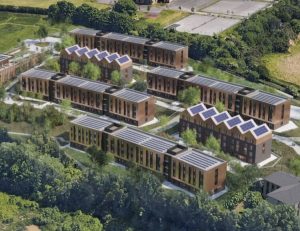£10m fund to boost rural communities

RURAL businesses across the West Midlands have been told that a more local approach to delivering funding support will help bring better improvements to their communities.
More than £10m of Rural Development Programme for England funding (RDPE) is available to support key issues in villages and towns across the region.
Utilising the money to best effect will help to maximise job opportunities and enhance the quality of life in for people living and working in such areas, RDPE has said.
Speaking to a meeting of Local Action Groups in Rugby, Rebecca Frost, Programme Manager for the RDPE Network, said: “RDPE supports a range of schemes for land based businesses (farmers, growers, foresters and primary processors), rural tourism organisations, rural businesses and community organisations.
“Through small capital grants, strategic investment funding and action plans, the programme will aim to safeguard and enhance the countryside, helping communities to thrive in the process.”
She said the meeting, the second event of its kind, had been shaped by the LAGs and the organisations they work with.
Those attending had shared examples of recent activity and how the funding was working.
“It was also an opportunity to look at how this money can be spent to help bring our local communities out of recession by encouraging businesses to diversify,” she said.
LAGs are expected to have an increasingly important role in the distribution of the funding as they can target those in most need of support.
The groups have also helped develop Local Development Strategies that set out plans for the improvement of their areas.
Key to their success is the encouragement they give to local people and organisations, particularly getting them to come forward and highlight the issues facing them in the current economy.
The West Midlands has already been awarded approximately £10.22m in funding to deliver this support until 2013.
It will be administered by eight LAGs in the region, including Shropshire Hills, Rural Staffordshire, North Warwickshire, Central Warwickshire, Rural Worcestershire, Rural Herefordshire, Northern Marches and the Peak District.
It will be channelled into helping meet six main priorities in the region, which range from enhancing the value of the countryside and improving skills, to increasing access to services and developing a sustainable and diverse business base.









